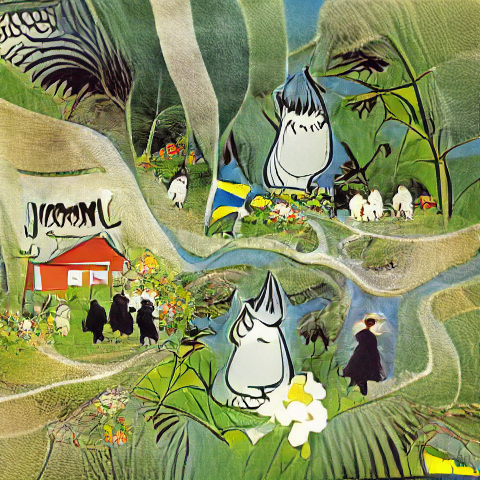+"Tom of Finland" (the ultimate Finnish LGBTQ collaboration?) I really love the trees in the background. 

That one had a fun instability, shifting from low saturation line art to fabulous jungle. Likely a slow drift along the image manifold to the high dimensional colourful image subspace from the constrained initial state.
+"Simon Stålenhag", "+M.C. Escher" (Again, the ultra-Scandinavianness of @simonstalenhag meshes well with Tove Jansson - note the background detail.) 



+Anders Zorn, +Carl Larsson (Yes, the background lakes and birch tree continue. And Mrs Fillyjonk is perfectly at home in Carl Larsson's house.) 



+John Bauer. Here I got disappointed, it just went for watercolours rather than any moody deep forests. Still, definite troll feeling. 



• • •
Missing some Tweet in this thread? You can try to
force a refresh



















